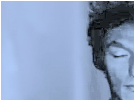Surrealism as Social Critique latches onto the creative power and growth symbolized by the number three. It seeks to critique societal chasms and understand a possible third sphere of our society through the synthesis of distinct halves—yin and yang, you and I, etc.—into a singular WE or a whole ALL.
In his “Introduction” to Revolution in the Service of the Marvelous, Franklin Rosemont wrote, “all that deserves the name poetry is endangered, almost to the brink of extinction, by a violent, totalitarian, spirit-crushing life-threatening social order that is concerned exclusively with increasing the profit, power, and privilege of a tiny, parasitical ruling class.”[1]
WE WANT to hear your social critique through the poetic voice of Surrealism.
Surrealism as Lived Experience seeks to understand how surrealists experience and interpret life regarding the three attributes of every human—body, soul, and spirit—and the three stages of the human cycle—birth, life, and death.
For inspiration we turn our attention to the Comte de Lautréamont who epitomizes the lived experience of surrealism:
To be possessed by a fixed idea: are you familiar with this torment?
No, your mind is too easy, your senses too cold and sedate, you don’t’ suspect this sort of torture. Well, I am eighteen, fervent of soul, virgin in every excessive pleasure, body overflowing with life and all vigour; a fixed idea dominates me: to be free.
[ . . . ]
Furthermore: it is the octopus of the novelist that seizes me, holds me, grasps me in its hideous embraces. We become one: it drinks me, inhales me, assimilates my being. I am no longer myself, I am it. The man is transformed; all his faculties are absorbed in the desire, it’s no more than a passion served by the will.
Oh, for just a bit of liberty![2]
WE WANT to experience the modern-day surrealists’ lived experiences through their poetic words.
Surrealism as Marvelous Nature reveals the beautifully bizarre within the tripartite nature of the world—heavens, earth, and waters.
In observing the flutter of a butterfly’s wing, “thrice smattered with the dust of all precious stones,” André Breton ponders the idea of resurrection in which, “through its obscure metamorphoses from season to season, the butterfly again puts on its exalted colors.”[3]
How does Nature reveal its beautifully bizarre to today’s poets? Recently, a newly discovered species of moth was named after Donald Trump (Neopalpa donaldtruml) because its “hairdo” (the small scales on its frons) resembles that of Donald Trump. If Trump is an agent of the “life-threatening social order” that Rosemont decries in his introduction to Revolution in the Service of the Marvelous, then how shall today’s poets interpret the moth’s timely appearance?
WE WANT to see the natural world in all of its marvelous manifestations through the poetry of percipient surrealists.
WE WANT SURREALISM!
Daren Berton, Editor
Surreal Poetics
[1] Rosemont, Franklin. “Introduction” in Revolution in the Service of the Marvelous. Chicago: Charles H. Kerr, 2004, p.2.
[2] Comte de Lautréamont. “Things Found in a Desk” in Maldoror and the Complete Works. 3rd ed. Translated by Alexis Lykiard. Cambridge: Exact Change, 2011, p.265-66.
[3] Breton, André. Arcanum 17 with Apertures Grafted to the End. Translated by Zack Rogow. Los Angeles: Sun & Moon Press, 1994, p.77-78.

 RSS Feed
RSS Feed
